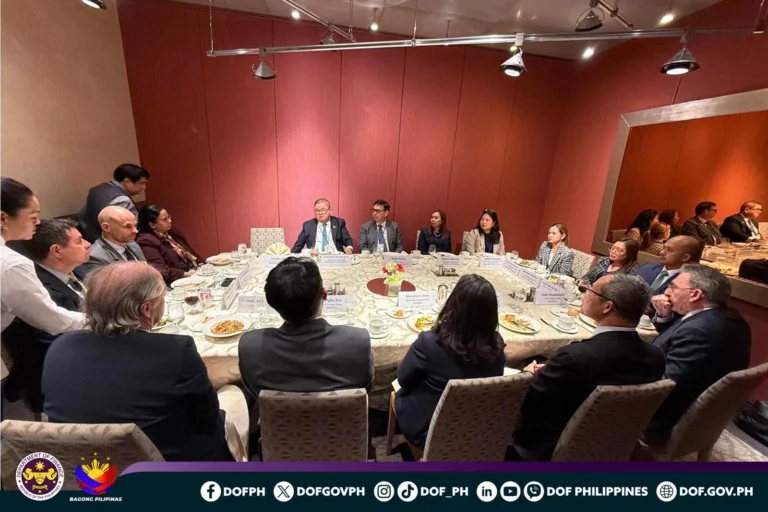The senior vice chairperson of the House committees on ways and means, on appropriations and on economic affairs has given his full backing to the Duterte administration’s resolve to make the Comprehensive Tax Reform Program (CTRP) “ambitious” enough to transform the Philippines into an upper-middle income economy by 2022 and a high income one in one generation or by 2040.
Albay Rep. Joey Salceda, a highly-respected economist, said at a House ways and means committee hearing on this reform plan that with the current tax system essentially “a subsidy to the rich,” the implementation of the proposed CTRP is the only way to make the system more equitable, given that the Philippines is not a socialist state but a democratic country.
The first package of the Department of Finance’s tax reform plan, which aims to lower the personal income tax (PIT) while adjusting rates of consumption taxes to current inflation, is the “only systematic way to address this inequality” in the tax system under a democracy like the Philippines, Salceda noted.
Package One is contained in House Bill No. 4774, the refined version of the DOF’s plan that was filed in the chamber by Quirino Rep. Dakila Carlo Cua, who chairs the House ways and means committee. This panel has thus far held seven hearings on Package One of the CTRP.
When Cua posed the question on whether the Congress would approve an “ambitious” CTRP or “temper” the DOF-endorsed HB 4774, Salceda said he is on “the side of the ambitious ones”.
Salceda said at one of the committee hearings that such an ambitious tax reform plan is necessary to realize President Duterte’s goal of transforming the country into a high-middle income economy by 2022.
“I think it is valid and legitimate that we should be part of the upper-middle income countries. So to do that, you need to grow the economy by 9 to 10 percent,” Salceda said, pointing out that the CTRP, which would ensure the financial sustainability of the government’s massive infrastructure program, is the way to attain these high growth targets.
He said the government cannot exclusively tax the rich to protect the poor from any of the CTRP’s effects because such a measure would be immediately struck down as class legislation, which is prohibited under the Constitution.
“Alam mo, ‘yung buong Pilipinas, nandoon tayo sa proseso na dahil sa globalization, kapitalismo, hindi naman tayo maka-withdraw, pero kaya ang nangyari nagkaroon ng massive suctioning or concentration of [wealth]. Napunta sa taas lahat (The entire Philippines is now under a process where because of globalization, capitalism, which we can’t withdraw from, there is a massive suctioning or concentration of wealth—all of it is going to the top),” said Salceda at the recent hearing.
Salceda added: “So we need to deconcentrate the economy. The way to deconcentrate the economy is essentially to make the rich pay their correct taxes.”
To shield vulnerable sectors from the impact of taxing the rich, the government, as provided under the CTRP, has earmarked a substantial portion of the taxes to be collected from affluent taxpayers for direct transfer programs that will benefit the bottom 50 percent of the population, or the poorest of the poor.
“Ibabalik na lang po kung anuman po ang damage sa mahihirap (We will just return whatever damage is done to the poor) in two ways: ‘yung direct income transfers … for the poor and making all the other pro-poor programs in the government more sustainable,” Salceda said.
Finance Undersecretary Karl Kendrick Chua noted at the committee hearing that HB 4774 earmarks some P48 billion for targeted transfers that would benefit the bottom 50 percent of the population and shield them from the initial impact of the fuel excise tax hikes and other revenue-compensating measures tucked into the bill.
HB 4774 aims to lower personal income tax rates for 99 percent of the country’s taxpayers while expanding the value-added tax (VAT) base and adjusting rates for consumption taxes such as the excise tax on petroleum products and automobiles. VAT exemptions for seniors and persons with disabilities will be retained under the bill.
Finance Secretary Carlos Dominguez III stressed in one of the committee hearings that tax reform is necessary to help fund the Duterte administration’s accelerated spending on infrastructure, which would not only fill the massive backlog left behind by the previous administrations, but would also create more jobs that are needed to help free some six million Filipinos from poverty by the end of the President’s term in 2022.
Investing heavily in infrastructure is likewise indispensable to the government’s goal of sustaining the high-growth momentum and making its benefits truly felt by all Filipinos, Dominguez said.
Dominguez told the committee that tax reform is needed so that the government can invest P1 trillion more each year on top of the current P1.3 trillion it invests in the economy. Of the additional P1 trillion, he said P402 billion will be invested in education, P138 billion in health, P147 billion in social protection for the poorest of the poor, P194 billion in urban infrastructure and P188 billion in rural infrastructure.





